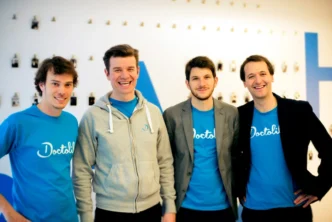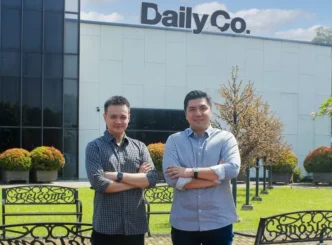European startups and investors are increasingly concerned about the potential rise in cloud computing costs following recent developments in US trade policies. The threat of higher prices could hinder growth ambitions and delay profitability for many tech startups, as fears mount that US tariffs on imported components could force major cloud providers to pass on their increased operational costs.
Earlier this month, US President Donald Trump sparked global market turmoil by introducing a sweeping package of import taxes targeting trading partners worldwide. While Trump later reduced many of the tariffs, uncertainty remains about whether or when they will be reinstated.
The Impact of US Tariffs on Hyperscalers
The cloud computing industry is primarily controlled by US-based hyperscalers like AWS (Amazon Web Services), Microsoft Azure, and Google Cloud, which dominate the European market. Should tariffs impact their bottom lines—especially on imported servers, semiconductors, and other essential components—some of these costs may inevitably be passed on to their customers, including startups and venture capitalists (VCs).
“Tariffs are a genuine worry,” says Robert Marino, CEO of Qubit Pharmaceuticals, who warns that higher cloud service prices could directly affect his company’s operational costs. “Cloud providers inevitably pass higher costs down the chain, resulting in more expensive computing and data services,” Marino explains. “For startups running lean operations, these additional expenses can limit growth and reduce competitiveness.”
European Startups Faces Vulnerability Amid Uncertainty
According to BDO, a consultancy firm, over 70% of Europe’s cloud market is controlled by AWS, Microsoft Azure, and Google Cloud. The rise in import tariffs could force these major hyperscalers to adjust their pricing models, as they face higher operational costs from the tariffs on key hardware components.
“The prolonged trade pressures are forcing them to re-evaluate their pricing models,” says David Linthicum, founder of US-based Linthicum Research. “While they initially absorbed these costs to retain market share, the extended trade tensions are making that approach unsustainable.”
Ori Industries, a London-based cloud infrastructure provider focused on AI compute, could be forced to raise its prices if tariffs push up the costs of the components used to build the servers its platform runs on. Founder and CEO Mahdi Yayha explained that higher costs from suppliers could trigger a rise in cloud service prices: “If your costs go up, you need to adjust prices like any other service.”
In response to the growing risk of higher cloud computing prices, some European VCs, including Revaia, are advising their portfolio companies to review their cloud cost structures proactively. According to Alice Albizzati, founding partner at Revaia, this includes renegotiating deals with cloud providers and improving operational efficiency to reduce cloud consumption.
“We’re encouraging our companies to speak to legal and tax advisors to model tariff scenarios and adjust their contracts with cloud providers,” Albizzati says. “We want to build resilience ahead of time by reducing cloud usage and traffic.”
Potential Ripple Effects on Startup Budgets
VCs also worry that the broader economic impacts of tariff-related cost increases could extend beyond cloud computing. Christian Noske, a partner at NGP Capital, a deep-tech VC firm based in Berlin, warns that the Fortune 1000 companies could cut their budgets in response to tariff impacts. This, he says, would directly affect startups that rely on these larger companies for long-term contracts.
“We expect longer sales cycles and lower contract values for startups as a result of these pressures,” Noske says. “Our portfolio companies are already concerned about this impact.”
Despite some temporary relief from tariff measures, startups remain in a state of uncertainty. While US tariffs on semiconductors have so far remained exempt, the fear is that these could eventually be subject to taxes. For startups that rely heavily on hyperscalers, particularly software companies, the compression of gross margins could delay break-even points and lead to higher cloud service prices.
“Growth plans definitely need to be revised,” Albizzati warns. “For businesses heavily dependent on hyperscalers, higher costs could force them to pass on price hikes, which would further delay profitability.”













